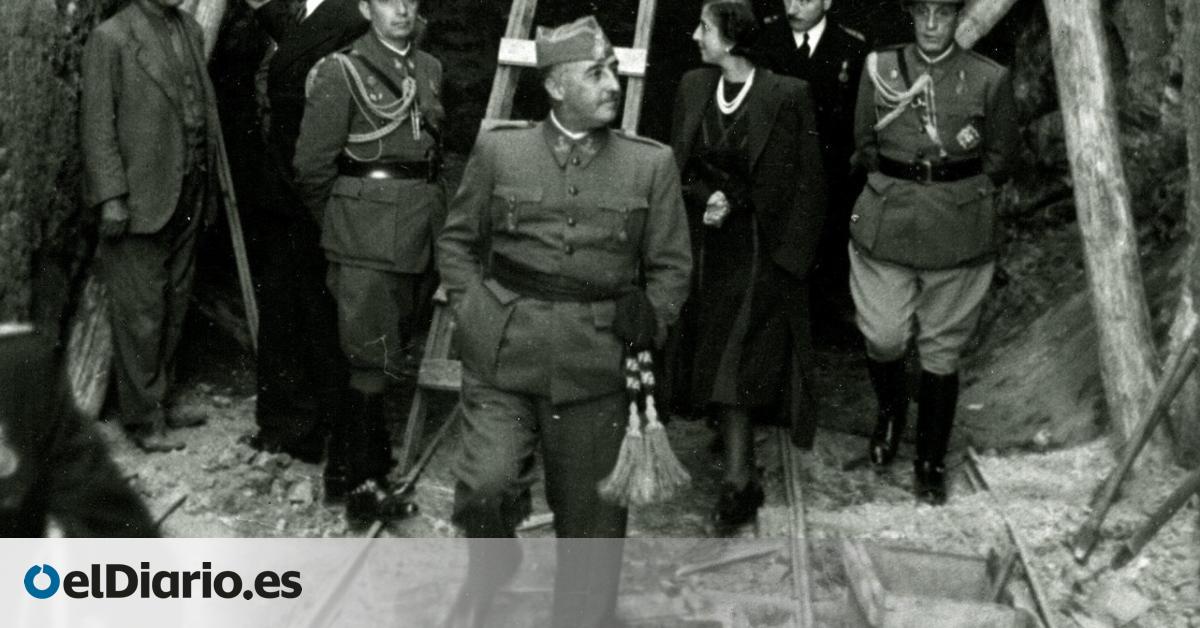
The Ministry of Culture has announced that it is beginning the process of the procedure for the extinction of the Francisco Franco Foundation. It does so “because it is considered contrary to the general interest to apologize for Francoism that praises the coup d’état and the dictatorship or praises its leaders, with contempt and humiliation of the dignity of the victims of the coup d’état, war or Francoism.” , or direct or indirect incitement to hatred or violence against them due to their status as such.” A process begins that will ultimately depend on the ruling of a judge after the issuance of reports from the State Secretariat for Democratic Memory, the Registry of Foundations and the General State Attorney’s Office.
This action gives “compliance with the provisions of the Democratic Memory Law, within the framework of the functions of the Protectorate of Foundations,” indicates the portfolio of Ernest Urtasun, regarding that body that is the responsibility of the cultural ministry. In the note sent to the media, the Ministry announces that “as a first step, preliminary actions are initiated aimed at obtaining information and elements of judgment that motivate the initiation of the procedure to judicially request the extinction.”
Urtasun has published a video on its social networks announcing this procedure and citing the Democratic Memory Law, which says that “a cause for extinction will arise when foundations do not pursue purposes of general interest or carry out activities contrary to it.”
The Urtasun Ministry had already announced in April its plans to extinguish this foundation, despite its attempts to circumvent the law. The Minister of Territorial Policy and Democratic Memory, Ángel Víctor Torres, who has worked in coordination with the Minister of Culture, said at that time that he would take over this foundation “and any other that defends the dictator or glorifies those who defended Francoism.” The Spanish anomaly of having organizations that advocate fascism does not end with the Francisco Franco National Foundation. Added to this are others such as the José Antonio Primo de Rivera Foundation or the Blas Piñar Foundation, historical leader of the extreme right and founder of Fuerza Nueva.
Three phases for extinction
The Ministry of Culture’s procedure would be developed in three phases. The first, the beginning of previous actions that now begin, consists of requesting reports from the State Secretariat for Democratic Memory and the Registry of Foundations under state jurisdiction.
The second will be the opening of the procedure, which would begin with the communication of the file to the aforementioned foundation and the opening of the corresponding allegations period.
Finally, a report would be requested from the General State Attorney’s Office, from which the Ministry of Culture would prepare a resolution to judicially request the extinction. Finally, the resolution of the procedure will be the decision of the judges.
The activities of the Francisco Franco Foundation
A large part of the activities of the Francoist foundation have been directed at trying to reverse through judicial means the actions carried out by the Governments in application of the memory laws, a Spanish exception in the fight against fascism pointed out by Europe. This was the case with the changes in the street maps that the Madrid City Council made during Manuela Carmena’s term in 2017 and that the foundation appealed to the courts for 52 streets, but the Superior Court of Justice of Madrid stopped that route and ruled that the foundation He could only sue for two of them, those that expressly referred to the dictator.
Last year, this foundation took the Ministry of Defense to court to appeal the change of the name of the Bandera Comandante Franco Battalion to Bandera España.
This organization has been operating for years as a lobby to praise the dictator using justice and fighting against historical memory. He had previously participated in the judicial process so that a town in Soria did not change its place name in which General Yagüe was praised, known as the ‘butcher of Badajoz’ for his bloody offensives in the Civil War after the 1936 coup d’état that ended republican legality.
Source: www.eldiario.es

